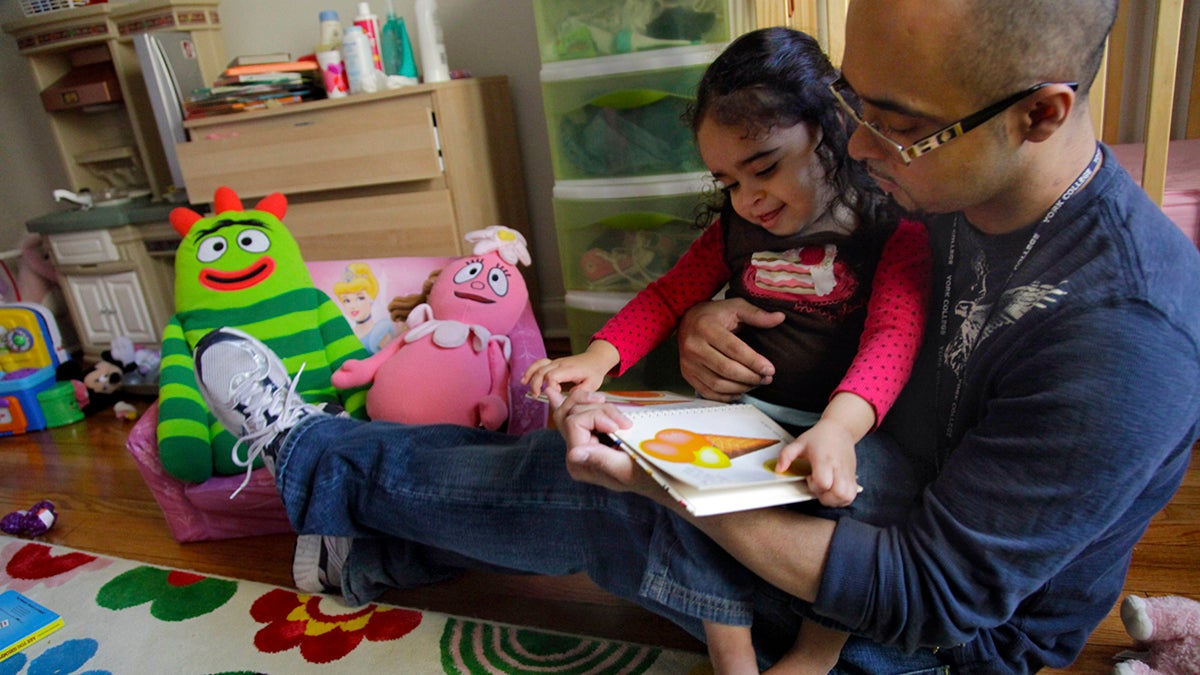Screenings can miss autism spectrum disorder, CHOP study finds
Listen
Christopher Astacio reads with his daughter Cristina, 2, diagnosed with a mild form of autism, in her bedroom in this Wednesday, March 28, 2012 file photo in New York. (Bebeto Matthews/AP Photo)
Many children who have autism spectrum disorder were missed in early screenings, a new study from researchers at The Children’s Hospital of Philadelphia has found.
The American Academy of Pediatrics recommends that doctors screen children for autism at 18 and 24 months, said Dr. Whitney Guthrie, a postdoctoral research fellow at the Center for Autism Research at CHOP and the study’s lead researcher.
“There’s a big gap between when the first signs of autism emerge in the first and second years of life, and the average age that most kids in this country are diagnosed — which is 4,” she said. “So there’s this window of opportunity to get early intervention that some kids with autism spectrum disorder are missing because they’re not screened in time.”
That’s a problem, she said, because experts say early intervention is the key.
By studying the health records of 13,000 children who were screened for autism at CHOP, Guthrie and her team found that screenings detected the spectrum disorder in only about 40 percent of all kids who had it.
Guthrie and her team aren’t sure why this is happening, but they hypothesize that it might have something to do with questionnaires doctors give parents as part of the screenings.
They ask questions such as “does your child make eye contact or smile back at you, yes or no?”
Guthrie said it’s hard for parents to know how to answer those questions accurately.
“It’s a really difficult thing for parents to do — so what usually isn’t happening is the complete absence of social behaviors,” she said. “Kids who have autism spectrum disorder generally look sometimes, and they might point sometimes, and they might smile sometimes — just not as frequently as other kids their age.
“And asking parents to judge whether their child is showing the typical amount of all these behaviors at that particular age is incredibly hard for parents to do,” she said.
The study results show that screenings aren’t working as well as doctors and researchers would like them to, Guthrie said.
She said she believes doctors must continue adhering to recommended screenings — adding that screenings could stand to catch up with technology. “As researchers, we need to identify newer, better methods that can identify all children,” she said.
To help identify more kids with autism spectrum disorder earlier, Guthrie and her team are working on an app for parents. The app would allow parents to take videos of their child responding to their name — something children with autism don’t do as often as neurotypical children — and then hand the videos over to researchers for further study and for help identifying more kids.
WHYY is your source for fact-based, in-depth journalism and information. As a nonprofit organization, we rely on financial support from readers like you. Please give today.

